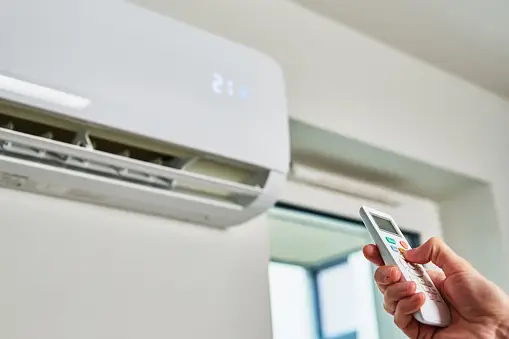Maintaining your air conditioning (AC) system is essential for ensuring its optimal performance and longevity. Regular AC maintenance not only improves energy efficiency but also enhances indoor air quality and reduces the risk of costly repairs. In this article, we will explore why regular AC maintenance matters and highlight key maintenance tasks for achieving optimal performance.
Why Regular AC Maintenance Matters
Proper maintenance of your AC system offers several benefits that directly impact its performance and your comfort.
Improved Energy Efficiency
Regular AC maintenance plays a vital role in maintaining energy efficiency. Over time, dust, debris, and dirt accumulate on the air filters, coils, and other components of the AC unit, hindering its ability to cool efficiently. When the system operates under such conditions, it requires more energy to deliver the desired cooling, resulting in increased energy consumption and higher utility bills. Routine maintenance, including cleaning or replacing air filters and clearing debris from coils, ensures unobstructed airflow and promotes optimal energy efficiency.
Prolonged Lifespan of Your AC Unit
Investing in regular AC maintenance can significantly extend the lifespan of your system. Neglecting maintenance leads to wear and tear on critical components, causing them to work harder and potentially fail prematurely. By scheduling regular maintenance, you allow trained professionals to inspect, clean, and lubricate various parts of the AC unit, reducing strain on the system and increasing its longevity.
Enhanced Indoor Air Quality
Your AC system plays a crucial role in maintaining indoor air quality. Dust, allergens, and pollutants can accumulate in the air filters and ductwork, diminishing the quality of the air you breathe. Regular maintenance involves cleaning or replacing air filters, inspecting and cleaning ducts, and removing any build-up of contaminants. This improves the overall air quality, reducing the risk of respiratory issues and promoting a healthier living environment.
Reduced Repair Costs
By adhering to a regular AC maintenance schedule, you can significantly reduce the risk of unexpected breakdowns and costly repairs. During maintenance visits, technicians conduct thorough inspections, identify potential issues, and address them promptly. Detecting and resolving minor problems early on prevents them from escalating into major failures that could disrupt your comfort and require extensive repairs or part replacements.
Key Maintenance Tasks for Optimal AC Performance
To ensure optimal AC performance, certain maintenance tasks should be carried out regularly.
Air Filter Cleaning and Replacement
Air filters are responsible for trapping dust, pollen, and other particles from the air circulating through your AC system. Over time, these filters can become clogged, obstructing airflow and decreasing efficiency. Regularly cleaning or replacing air filters is essential for maintaining proper airflow and preventing strain on the system.
Coil Cleaning
The condenser and evaporator coils in your AC unit can accumulate dirt and debris, hindering their ability to transfer heat effectively. Dirty coils lead to reduced cooling efficiency and increased energy consumption. Routine coil cleaning removes any build-up, optimizing heat transfer and ensuring efficient cooling.
Condensate Drain Inspection
The condensate drain in your AC system removes moisture that forms during the cooling process. Over time, the drain line can become clogged with algae, mold, or debris, leading to water leaks or system malfunctions. Regular inspection and cleaning of the condensate drain prevent blockages and potential water damage.
Lubrication of Moving Parts
The moving parts of your AC system, such as motors and fans, require proper lubrication to operate smoothly. Over time, lubrication can diminish, leading to increased friction and strain on these components. Regular AC maintenance includes lubricating these moving parts, reducing wear and tear and ensuring optimal performance.
Checking Refrigerant Levels
Refrigerant is the substance responsible for absorbing heat from indoor air and transferring it outside. Insufficient or leaking refrigerant can lead to decreased cooling efficiency and potential damage to the compressor. Regular maintenance involves checking refrigerant levels and addressing any leaks or recharging as necessary, ensuring your AC system can effectively cool your space.
The Role of Professional AC Maintenance
While some maintenance tasks can be performed by homeowners, professional AC maintenance provides added expertise and benefits.
Expertise and Knowledge
Certified HVAC technicians have the necessary expertise and knowledge to perform comprehensive AC maintenance. They are trained to identify potential issues, understand the intricacies of various AC systems, and provide the appropriate solutions. Relying on professionals ensures that your AC unit receives the highest quality maintenance and attention.
Comprehensive Inspection
Professional AC maintenance includes a thorough inspection of all components, electrical connections, and system performance. Technicians can detect early signs of wear, identify potential hazards, and ensure that your AC system is functioning optimally. Comprehensive inspections allow for proactive maintenance and addressing issues before they become major problems.
Timely Detection of Issues
During routine maintenance, HVAC technicians can identify and address minor issues before they escalate. By detecting and resolving problems early on, you can prevent costly repairs or system failures that could disrupt your comfort. Professional maintenance helps ensure that your AC system operates at its best and provides reliable cooling throughout the year.
Compliance with Warranty Requirements
Many AC manufacturers require regular professional maintenance to uphold the warranty. Failure to comply with these requirements may void the warranty, leaving you responsible for repair or replacement costs. By scheduling professional maintenance, you not only maintain optimal performance but also safeguard your warranty coverage.
Conclusion
Regular AC maintenance is crucial for ensuring optimal performance, energy efficiency, and longevity of your system. By investing in routine maintenance, you can enjoy improved indoor air quality, reduce the risk of costly repairs, and prolong the lifespan of your AC unit.
